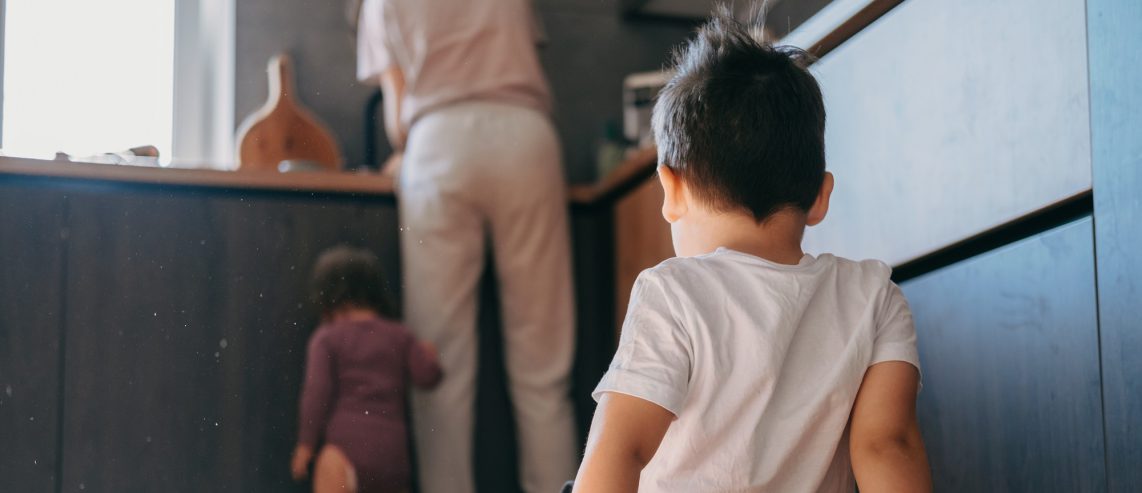More states have legalized marijuana. As access to marijuana has increased, so has accidental edible marijuana poisoning in children.
In January 2023, the journal Pediatrics published a study on the number of exposures to marijuana edibles for children 6 and under between 2017 and 2021. The study found a reported 3,054 cases of marijuana edible exposures for children 6 and under in 2021. That marked a 1,375% increase from the number of exposures in 2017.
Consuming edibles can have dangerous — even life-threatening — effects on children. The Pediatrics study reported that the number of hospitalizations from marijuana edible consumption also increased significantly between 2017 and 2021. Nearly 23% of exposures ended with a hospital admission.
More than 20 states in the U.S. now fully legalize marijuana. Many others legalize marijuana for medical use. Almost 98% of reported exposures analyzed in the Pediatrics study happened in residential settings.
“Ever since marijuana and cannabinoids became a medicinal product, a lot more people have access to it,” says Anthony Pizon, MD, chief, Medical Toxicology, UPMC. “Increasing access increases opportunities for children to get into it. We knew this was going to be a problem. It’s hard to control.”
Learn to recognize the signs of marijuana edible poisoning in children and how you can prevent it from happening.
What’s a Marijuana Edible?
Edibles are food and drink products that include chemicals from marijuana, such as tetrahydrocannabinol (THC). The use of edibles as a form of marijuana consumption is increasing.
Edibles can come in many different forms, including:
- Baked goods (brownies, cookies, cupcakes, etc.).
- Beverages.
- Candies (gummies, chocolate bars, etc.).
- Lozenges.
Never Miss a Beat!
Subscribe to Our HealthBeat Newsletter!
Thank you for subscribing!
You can now select the specific newsletters you'd like to receive.
You are already subscribed.
Subscribe to more newsletters in our email preference center.
Sorry, an error occurred. Please try again later.
Get Healthy Tips Sent to Your Phone!
Why Are Edibles Dangerous for Kids?
Edibles are dangerous for kids because:
- They contain harmful levels of marijuana for a child’s body. A typical adult starting dose of edible marijuana is anywhere from 2.5 mg to 10 mg of THC. That amount of THC can harm children, who weigh less. Also, the concentration, amount, or strength of THC in edibles is hard to measure, according to the Centers for Disease Control and Prevention (CDC). An edible may contain even more THC than expected, making it even more dangerous for kids.
- Some edibles contain multiple doses of THC. Though adults may know to stop after a single dose, children often do not. They may consume an entire THC-infused brownie — which could contain multiple doses of THC, thus putting them in danger.
- They look innocent. Because edibles often look like sweets that children are already familiar with, they are vulnerable to eating them. Some edibles come in wrappers or packaging that resemble widely recognized brands of candies or baked goods. “Children will see a gummy bear and think, ‘Great,'” Dr. Pizon says. “And they’ll quickly run into problems that way.”
- They may not read the packaging. Many marijuana edibles come in packaging that indicates what it is. But children, especially young children, may not read the packaging and understand what it is. In other cases, the edible may not have any packaging at all. It just may look like a normal drink, baked good, or piece of candy.
- The effects last longer. The effects of smoking marijuana come on and go away quickly. But with edibles, the effects come on slower and often last longer — especially with higher doses. “When you ingest it, it comes on more insidiously, and it sticks around longer,” Dr. Pizon says. “So, these kids may be comatose and out of it for a day or more.”
The Pediatrics study focused on accidental exposures to marijuana edibles by children 6 years old and under. But Dr. Pizon says exposure in children of all ages, from toddlers to teenagers, is cause for concern.
“Obviously, the younger and smaller you are, the bigger risk, but we also see older kids,” Dr. Pizon says. “They don’t read the packaging, they just see it as candy and start eating it and realize, ‘Wow, this has a strange taste.’
“So, you’ll see that age range, and then you’ll also see older, adolescent-aged children who are maybe experimenting. They know that this is Mom or Dad’s special marijuana-containing product, and they’ll experiment with it. So, we kind of see the accidental ingestion with the younger kids and then the older kids who are experimenting.”
Warning Signs of Edible Marijuana Poisoning in Children
Three key warning signs of marijuana edible poisoning in children are:
- Altered mental state.
- Low blood pressure.
- Breathing problems.
Edibles have a sedating effect, so they could affect the way your child behaves. If your child is pale or turning blue, it could signal low blood pressure or breathing problems. The effects of marijuana edibles can take 30 minutes to two hours to appear. They can last for several hours or longer.
Other signs of marijuana overdose in children, according to the American Academy of Pediatrics, include:
- Altered perception.
- Anxiety.
- Breathing problems, including apnea (breathing that stops for 10 seconds or longer).
- Dizziness.
- Excessive sleepiness.
- Heart problems.
- Panic.
- Paranoia.
- Poor coordination.
- Signs of intoxication.
- Slurred speech.
- Weakness.
If you notice any of these symptoms — or if you notice your child has gotten into an edible — call 911 or go to the emergency department right away.
“If parents notice that their kid is not acting appropriately, they need to take them to the hospital, knowing that it could be longer-lasting and still worsening over the course of several or so hours,” Dr. Pizon says. “If they notice that their child got into it and is not acting their normal self, they should go to the hospital because it could still ramp up.
“I would tell them to call 911 to make sure that they have all the support that they need.”
Preventing Edible Marijuana Poisoning in Children
There are steps parents can take to prevent their children from accidentally consuming edible marijuana products, including:
- Lock up any edible marijuana products. Treat edibles like other medications or dangerous household chemicals. Put them into a child-safety container and/or lock them away. “Just storing it away in a place where you don’t think your kids are going to find it is not a great solution because kids find everything,” Dr. Pizon says. “So, they have to lock it up and/or put it in a child-safe container so that kids don’t use it. I think the double situation is best, especially for the edibles, because they’re so attractive to little kids.”
- Don’t consume edibles in front of kids. Consuming edibles in front of kids can make it tempting for them.
- Discuss the dangers. When your children are old enough to understand, talk to them about the effects of marijuana and other drug use. Tell them the potential harm that overdoses can cause. Make sure they understand that edibles may look innocent but can also pose a danger.
- Talk to other caregivers. If your child has a babysitter or spends time with a relative or at a friend’s house, ask them if they take edibles. If they do, ask them to keep them locked up and not take them in front of your child.
By taking the right steps, you can help protect your child from the effects of marijuana edibles.
UPMC Children’s Hospital of Pittsburgh provides world-class care for children throughout our communities. To learn more about our services, visit our website.
Editor's Note: This article was originally published on , and was last reviewed on .
Sources
Daniel G. Barrus, Kristen L. Capogrossi, Sheryl C. Cates, et al, RTI Press Methods Report Series, Tasty THC: Promises and Challenges of Cannabis Edibles. Link
Centers for Disease Control and Prevention, Marijuana and Public Health, Poisoning. Link
Drug Enforcement Administration, Just Think Twice, Drug Alert: Marijuana Edibles. Link
Kevin Osterhoudt, MD, American Academy of Pediatrics, Edible Marijuana Dangers: How Parents Can Prevent THC Poisoning. Link
Marit S. Tweet, MD, Antonia Nemanich, MD, Michael Wahl, MD, Pediatrics. Pediatric Edible Cannabis Exposures and Acute Toxicity: 2017–2021. Link
About Pediatrics
From nutrition to illnesses, from athletics to school, children will face many challenges growing up. Parents often will make important health care decisions for them. We hope to help guide both of you in that journey. UPMC Children’s Hospital of Pittsburgh is a national leader in pediatric care, ranking consistently on U.S. News & World Report’s Best Children’s Hospitals Honor Roll. We provide expert treatment for pediatric diseases, along well-child visits, urgent care, and more. With locations across Pennsylvania, Maryland, and West Virginia, you can find world-class care close to home. We also work closely with UPMC Magee-Womens Hospital, a national leader in care for newborns and their mothers. Our goal is to provide the best care for your children, from birth to adulthood and beyond. Visit our website to find a doctor near you.

